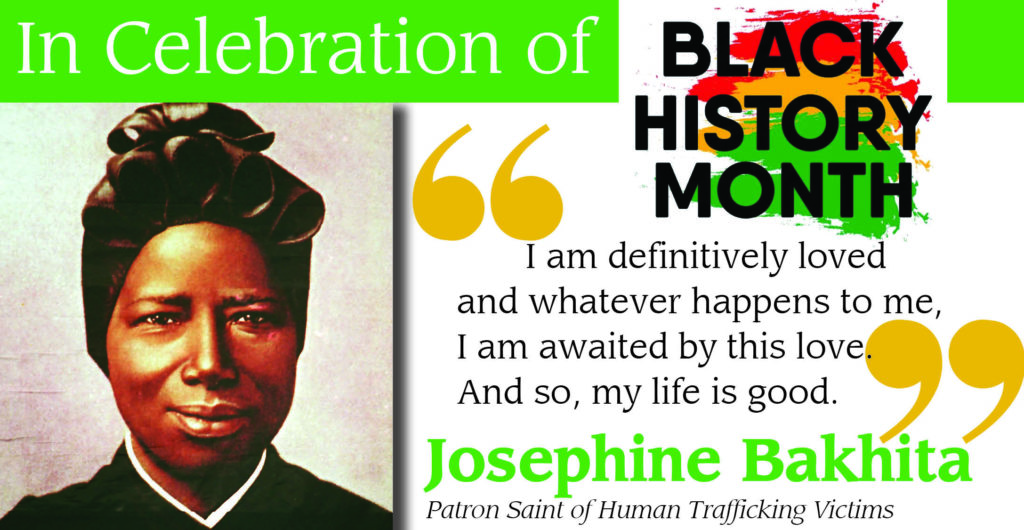 Noble’s Diversity and Inclusion Council is proud to highlight the third person in our Black History Month Spotlight Series: St. Josephine Bakhita.
Noble’s Diversity and Inclusion Council is proud to highlight the third person in our Black History Month Spotlight Series: St. Josephine Bakhita.
Born in 1869 in western Sudan, St. Josephine Bakhita was surrounded by a loving family of three brothers and three sisters. Her world took a horrific turn when she was kidnapped by slave traders at just 7 years old. Over the next 11 years, she endured unspeakable trauma as she was bought and sold many times. Under one master, she endured the very painful process of scarification by salt being poured into hundreds of razor cuts to ensure permanent scarring.
Due to the trauma of being captured, sold, and brutally beaten as a slave, she had no memory of her real name. Bakhita was the name given to her by her captors, meaning “ fortunate one,” and Josephine was a name she chose for herself.
At age 19, she was taken to Italy, where she served as a nanny to a young girl. When the family left town on business, she and the child were placed in the care of the Canossian Sisters in Venice. With their help, she obtained her freedom and entered the convent. The rest of her life was marked by service to others, but this time, it was of her own choosing. Although she was a slave for many years, her spirit was always free and eventually that spirit prevailed.
She died in 1947, and was canonized as a saint 53 years later. While Josephine endured unimaginable physical and psychological torture, she showed everyone mercy and forgiveness.
Today, Josephine Bakhita is venerated as a modern African saint and a powerful statement against the brutal history of slavery around the world. She is the patron saint of Sudan and of human trafficking survivors everywhere.
Please watch for the next feature in our Spotlight series: former Coach Tony Dungy.
Information from this post was adapted from websites for Franciscan Media and Notre Dame.











